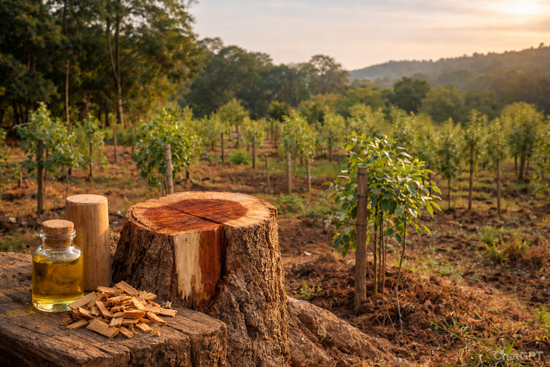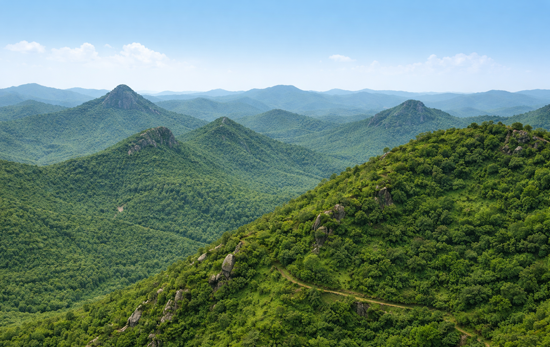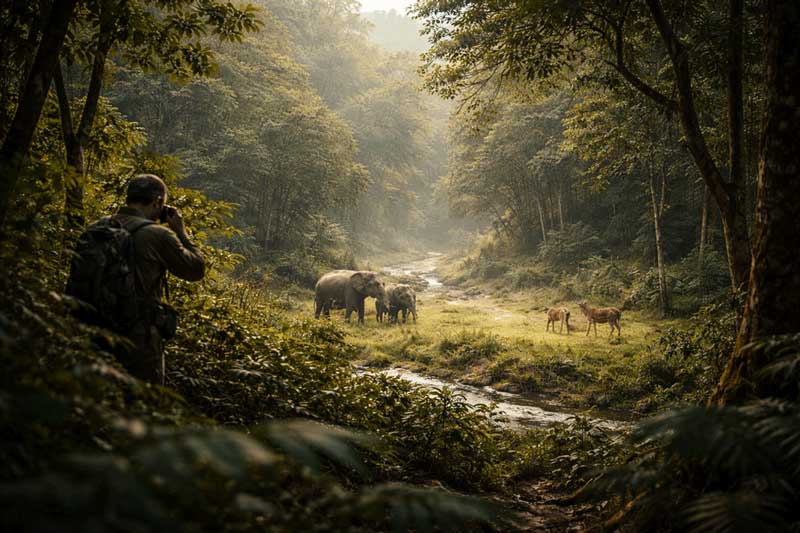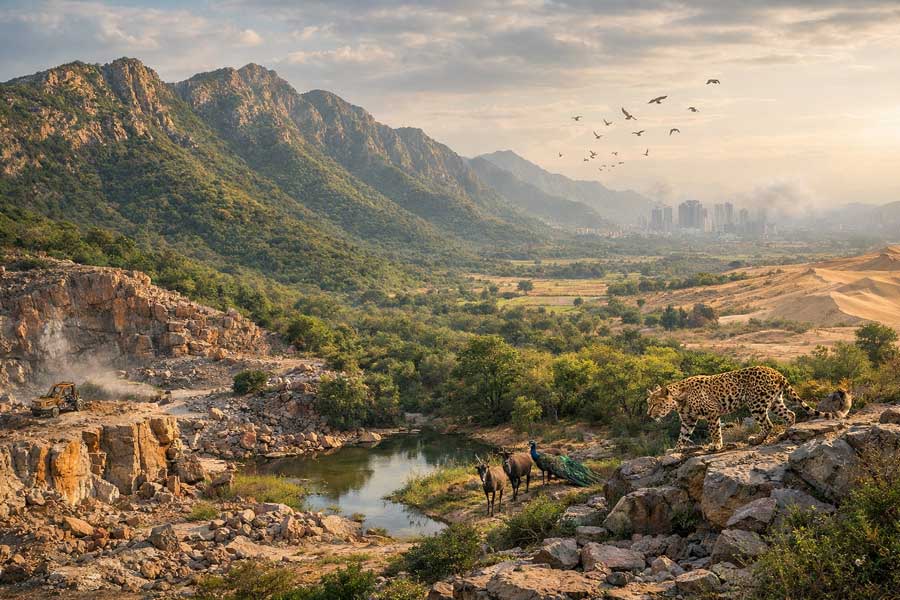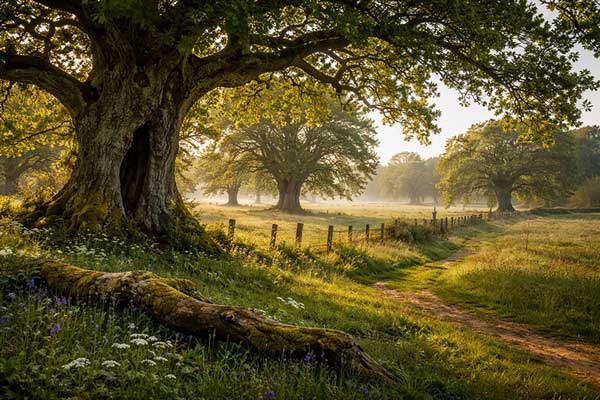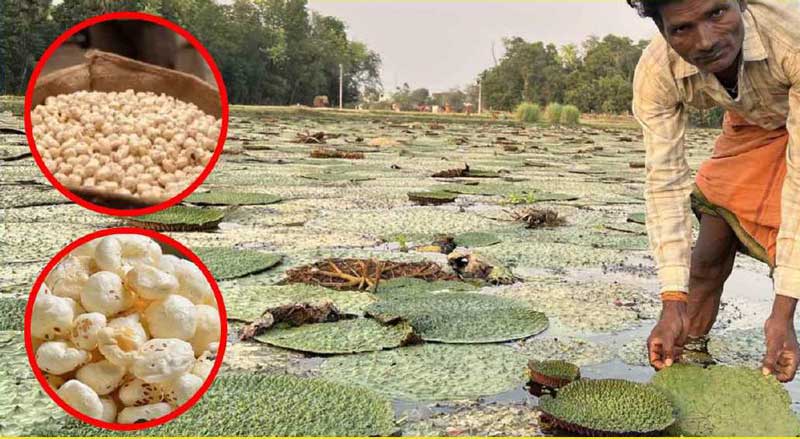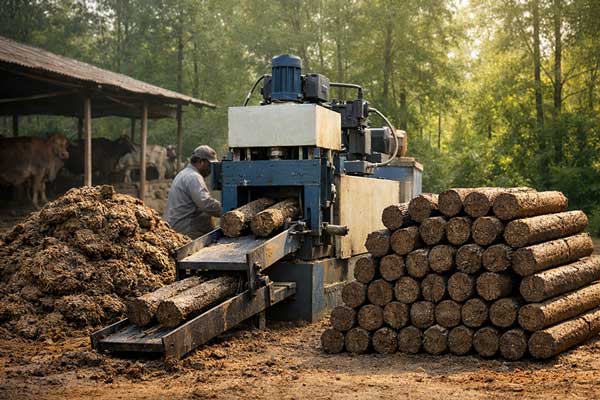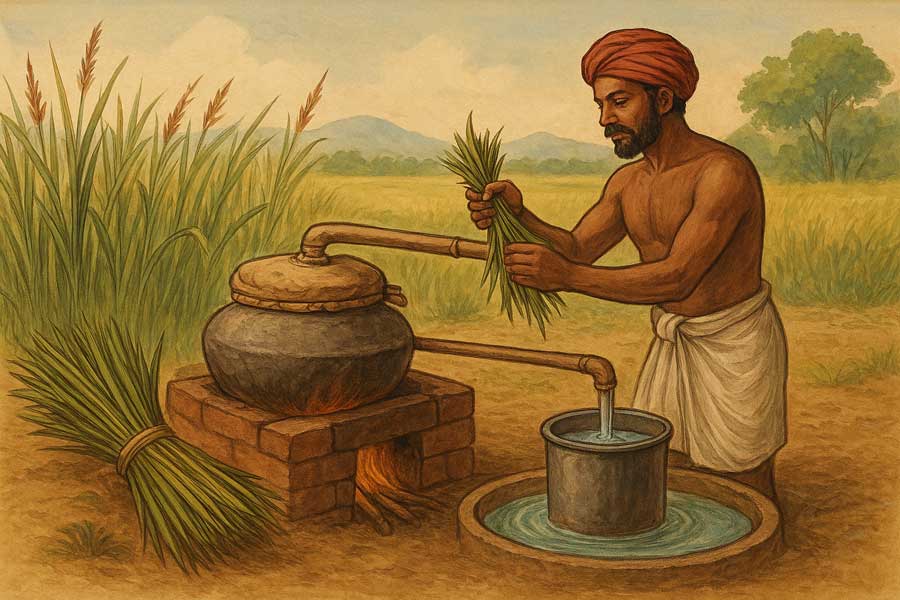A Letter From The Indian Forester
– Mr. A.D. Bhote Forest Ranger (Hoshangabad 13th Sept 1901)
Distillation of Rusha Grass oil, Central Provinces The grass, Andropogon schoenanthus or Rusha grass, commonly known as “Tikhari,” is a native of Central Provinces. It grows wild in swamps with erect culms, and attains a height of 3 to 6 feet. The leaves are long, smooth, tapering and have a strong aromatic smell and pungent test. The root locally known as “Mirchia kand” is perennial, with long wiry fibers. The oil obtained from this plant has become an important article of commerce. It is now chiefly distilled in many parts of Central provinces, especially in Betul, Nimar and Hoshangabad districts, by private persons, and taken to Ellichpur town, which is the chief market of export. Its current price is from Rs. 2 to Rs. 4 a pound, according to its purity. The grass is very abundant, and the distilling of the oil requires only a moderate skill and very small initial capital. About 50,000 (fifty thousand) pounds are exported annually from Bombay to Arabia, and European Turkey, Jedda and ports along the Red Sea. Its European name is Palma Rosa oil or Geranium oil. The oil is chiefly used as an adulterant for attaroi roses. In some places the roses are sprinkled it and the attar \s distilled. It is a proved fact, that” Rusha” grass oil does not solidify by cold, and this is the chief adulterant which stops the crystallizing habit of rose oil when exposed to low temperature and prevents its congealing. Rusha grass oil should be first refined before it is ready for admixture with attar of roses. It is also necessary that it should lose its penetrating aromatic-smell and acquire the colour of the attar of roses. In order to effect this change it is shaken with water, then acidulated with the juice of lemon, and finally exposed to the sun and air. The oil thus refined has a very slight difference from affarof roses, and can serve as an admixture which is very difficult to detect. It is very difficult in these days to procure pure Rusha grass oil, as the oil of commerce is more or less adulterated by the local distillers themselves. The chief substances to adulterate this oil are turpentine and the oil of ground nut, linseed, rape, &c., &c. By such adulteration the oil temporarily becomes turbid, but after a time it settles again and becomes clear. Pure oil should be of a pale sherry colour. The oil, which is considered to be cooling and astringent, is used as a liniment in rheumatism, headache and skin-diseases, and has the property of curing baldness. It is a powerful stimulant when applied externally, but is never taken internally, except in very minute doses for bilious affections. The grass, as far as I know, is not used as a fodder for cattle.
The grass generally flowers in October and November, and is then fit for cutting. It is tied into small bundles not exceeding 12 inches in circumference, and packed tight, horizontally, in a large metal cauldron, which is fitted on a rough masonry furnace, and then a small quantity of water is added. When full, a roughly scooped-out wooden lid is put and sealed with a plaster of ground pulse, or the lid is more firmly fixed by means of metal clamps. Through a hole in the lid one end of a hollow bamboo is inserted and the other end passed into a smaller metal vessel, which is securely fixed under water in the bed of the river. This smaller vessel serves as a condenser, and the bamboo tube in it is kept in position by pieces of cotton cloth well wrapped round the tube and serving as a stopper for the condenser. The furnace is then heated and the vapour passing through the hollow bamboo tube is deposited as oil in the condenser. The oil thus obtained contains a large proportion of water: 500 ponds of grass yields 2 pounds of pure oil when the still is carefully worked, but if the grass in the cauldron is allowed to burn, it communicates a dark colour to the oil.
With better apparatus, and a more scientific method of distilling, there is much room for improvement and every possibility of success. It might be worth while, for experiment, to reserve for departmental working a certain area and to carefully supervise the results.
Hoshangabad:
A.D. Bhote
13th September 1901
Forest Ranger



